A generation's fight in the shadows of quota

Once the curfew lifted, driving on the familiar roads seemed unfamiliar. The oleanders and allamandas on the airport road were in perfect bloom. During the imposed hiatus, the rain and shine had done them good. Maybe the lack of air pollution had given them some extra lustre. I drove through the link road to attend a meeting near a spot that had witnessed one of the bloodiest pitched battles between protesters, police, and their auxiliary forces. As I took the U-loop to get to Hatirjheel Drive, the charred walls of the national television centre came into sight. On that day, I encountered additional signs of destruction: the eerie toll booth at the entrance of the elevated expressway, the towering BRTA and Bridge Authority buildings adorned with burnt feet, the metallic apparitions of numerous ashen vehicles, and the vandalised metro rail stations—all emblematic of the development discourse. However, the streets hold no remembrance of the fallen and injured. To do so, you'll probably have to visit hospitals, graveyards, grieving families or turn to social media. While the broken infrastructure can be fixed, the lives lost can never be regained.
During the state-sponsored lull, the internet shutdown revived an almost forgotten device: the unsmart TV that only speaks. Unlike your mobile phone, it does not listen. The TV channels used sanitised rhetoric to cite official numbers and figures. Life without the internet, the long lines for prepaid utility services, and the spiked prices of daily essentials became unbearable as we craved for normalcy. Memories of anomalous deaths were pushed aside.
The army was brought in to restore peace. Meanwhile, we heard the movement was no longer about quotas; it was about justice. Students fighting for an end to positive discrimination have won their initial battle. The government claims it agreed with the demand from the start. The government was the one who appealed against the court ruling that resurrected the dead quota system. It also patiently allowed the peaceful Bangla Blockade to continue, allowing the legal system to run its full course.
On July 14, a taunt from above was audible. The insinuation that the protesters were the descendants of the 1971 collaborators sparked a spontaneous reaction. "We demanded our rights and got branded as collaborators," the students chanted. Their ironic slogan, "Who am I? Who are you? Razakar, Razakar!" was lost in translation. The movement that maintained a career agenda for all potential job-seekers suddenly became ideological. Skirmishes turned ugly. Violence erupted on the Dhaka University campus. The general secretary of Awami League boasted that his party's student wing was enough to quash the storm. Images of attacks started pouring in. Students turned against each other. Helmet-clad gangs did not even spare female students, causing the movement to spread to other regions. The next day, while we were watching TV, in Rangpur, they shot Abu Sayed, a student of English literature. In a Facebook post, he had echoed Wordsworth's sonnet "London 1802" to conjure the spirit of Dr Mohammad Shamsuzzoha, the proctor of Rajshahi University who, on the onset of the 1969 Mass Uprising, famously told law enforcement personnel, "Your bullets will pierce my heart first before they hit my students." Sayed died with his arms wide open as a policeman shot him. Sayed's mother's cry—"You didn't have to give my son a job if you couldn't; why did you kill him?" (translation ours)—reverberated through the grieving hearts. At least six people died that day.
The University Grants Commission (UGC) intervened, closing all public and private universities indefinitely. The fulcrum shifted. The students discovered unexpected allies in the "general mob," who started fighting by their side. Their agenda was many and unclear. The police used extreme measures, inciting further violence. By that time, the death toll had escalated, while thousands sustained injuries, and thousands found themselves in custody. The government summoned the army to restore calm. It expedited the judicial process, and on July 21, the Appellate Division heard the opinions of the amicus curiae, who reminded the court that the decision was an executive one. Everyone across the aisles seemed to be in agreement. What took the parties so long to come to a consensus on the disproportionate quota system, which was a no-brainer from the start? Who will own up to the madness and carnage? The healing process can only begin with a thorough survey of these questions.
The verdict, however, is already out. We hear that dark forces have taken control of the movement and turned it into arson. It appears that the ship for dialogue has sailed. When the students went to the president, he could have just given them his sympathetic ears. When the government decided to scrap the quota, they could have communicated in a non-sarcastic manner. A healing strategy was necessary when students suffered physical and emotional harm. Sending stick-wielding students to beat up the injured inside the hospital was never a solution. The internet abruptly shut down whenever the need to establish a communication channel arose, blaming the fire on the data centre and the fibre cables.
Businessmen showed concern over losing buyers as e-commerce collapsed. Fixing the economy became the priority. The black banners by the elevated expressway serve as a reminder of the time it will take to transform the once hard-earned road into a functional one. The prime minister wept at the vandalism that brought the coveted life in the metro rail to a halt. The home minister has visited the injured policemen. However, no one is present to support the injured and deceased students or ordinary citizens. The tears of grieving parents and kin are spinning in cyber reels.
Meanwhile, the protest has moved to a different level. And our political leaders, blinded by their egos, have failed to see that these young people fighting for their rights don't want to be trapped in any identity binary. They are citizens of the world. They sang "Bella Ciao," hacked into government websites, and mobilised international support. Their idealism has the freshness that defies the stink of old politics. Even the government isolated the arrest of the "BNP-Jamaat" axis from the activities of the students. The sooner the government understands that a student faction or increased military presence cannot destroy the student movement in five minutes, the better for the country. Giving the movement a political colour can create a long-term rift that the country cannot afford. We need to bring the killers and arsonists to justice, but we also need empathy and open-minded leadership.
As a teacher, I want to go back to my class and embrace all my students as one. We will begin the healing process by creating space for one another to share and grow in the true spirit of the Liberation War.
Dr Shamsad Mortuza is professor of English at Dhaka University.
Views expressed in this article are the author's own.
Follow The Daily Star Opinion on Facebook for the latest opinions, commentaries and analyses by experts and professionals. To contribute your article or letter to The Daily Star Opinion, see our guidelines for submission.

 For all latest news, follow The Daily Star's Google News channel.
For all latest news, follow The Daily Star's Google News channel. 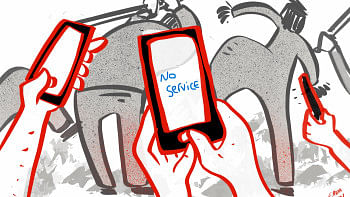
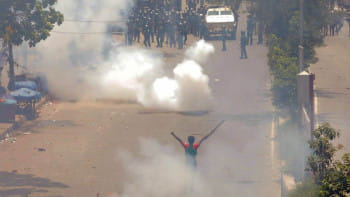
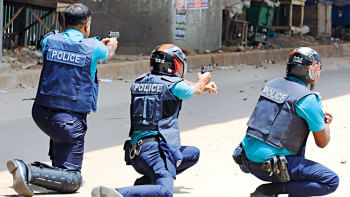



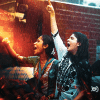

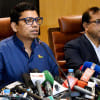



Comments